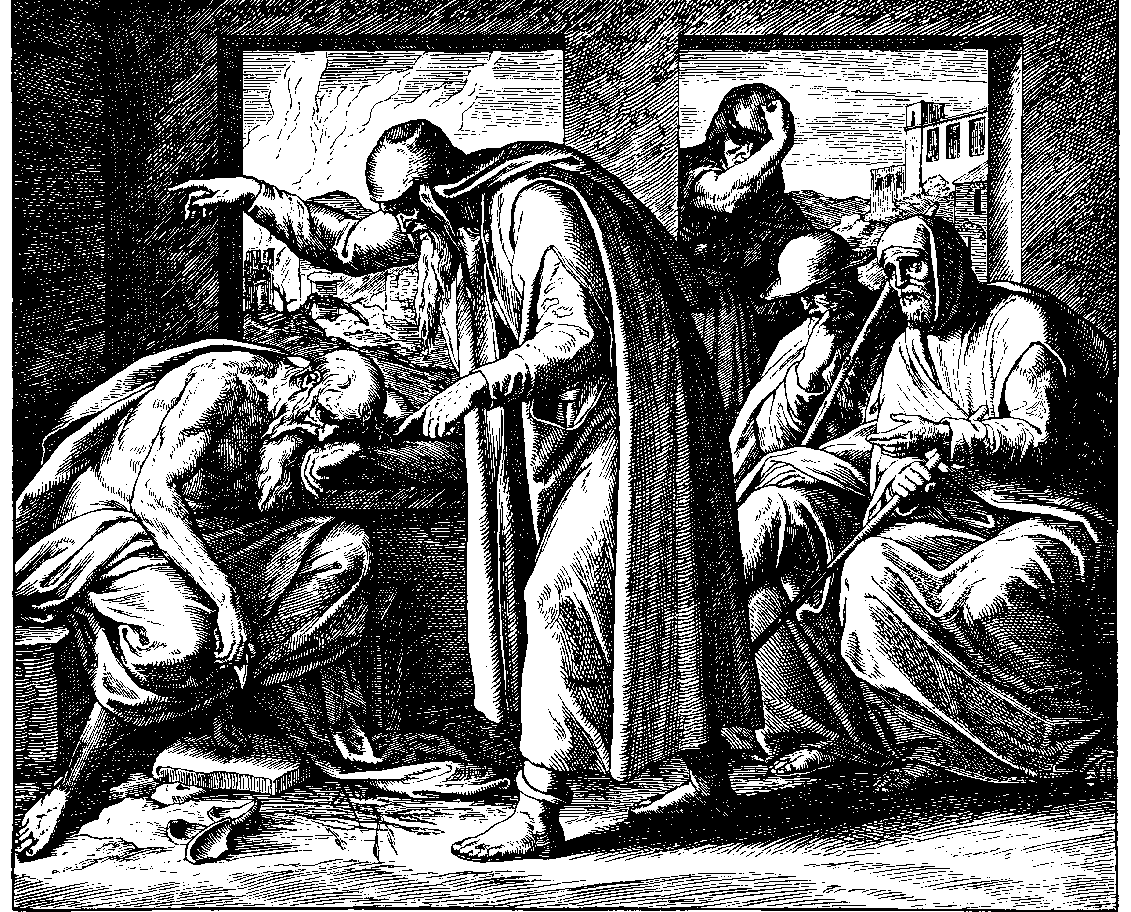Book of Concord for Saturday
45] And of the mortification of the flesh and discipline of the body we thus teach, just as the Confession states, that a true and not a feigned mortification occurs through the cross and afflictions by which God exercises us (when God breaks our will, inflicts the cross and trouble]. In these we must obey God’s will, as Paul says, Rom. 12:1: Present your bodies a living sacrifice. And these are the spiritual exercises of fear and faith. 46] But in addition to this mortification which occurs through the cross [which does not depend upon our will] there is also a voluntary kind of exercise necessary, of which Christ says, Luke 21:34: Take heed to yourselves lest at any time your hearts be overcharged with surfeiting. And Paul, 1 Cor. 9:27: I keep under my body, and bring it into subjection, etc. 47] And these exercises are to be undertaken not because they are services that justify, but in order to curb the flesh, lest satiety may overpower us, and render us secure and indifferent, the result of which is that men indulge and obey the dispositions of the flesh. This diligence ought to be perpetual, 48] because it has the perpetual command of God. And this prescribed form of certain meats and times does nothing [as experience shows] towards curbing the flesh. For it is more luxurious and sumptuous than other feasts [for they were at greater expense, and practised greater gluttony with fish and various Lenten meats than when the fasts were not observed], and not even the adversaries observe the form given in the canons.
49] This topic concerning traditions contains many and difficult questions of controversy, and we have actually experienced that traditions are truly snares of consciences. When they are exacted as necessary, they torture in wonderful ways the conscience omitting any observance [as godly hearts, indeed, experience when in the canonical hours they have omitted a compline, or offended against them in a similar way]. Again their abrogation has its own evils and its own 50] questions. [On the other hand, to teach absolute freedom has also its doubts and questions, because the common people need outward discipline and instruction.] But we have an easy and plain case, because the adversaries condemn us for teaching that human traditions do not merit the remission of sins. Likewise they require universal traditions, as they call them, as necessary for justification [and place them in Christ’s stead]. Here we have Paul as a constant champion, who everywhere contends that these observances neither justify nor are necessary in addition to the righteousness of faith. 51] And nevertheless we teach that in these matters the use of liberty is to be so controlled that the inexperienced may not be offended, and, on account of the abuse of liberty, may not become more hostile to the true doctrine of the Gospel, or that without a reasonable cause nothing in customary rites be changed, but that, in order to cherish harmony, such old customs be observed as can be observed without sin or without great inconvenience. 52] And in this very assembly we have shown sufficiently that for love’s sake we do not refuse to observe adiaphora with others, even though they should have some disadvantage; but we have judged that such public harmony as could indeed be produced without offense to consciences ought to be preferred to all other advantages [all other less important matters]. But concerning this entire subject we shall speak after a while, when we shall treat of vows and ecclesiastical power.



One Comment
MrsReeder
Thank you for posting these excerpts from the Confessions. I do have a request though, could you add a title to each excerpt? Yes you have the source down at the end of the post, and that’s great, but for me anyway, it would get my mind in the proper place and remind me what is being discussed if the specific Confession and Article were stated right at the beginning.